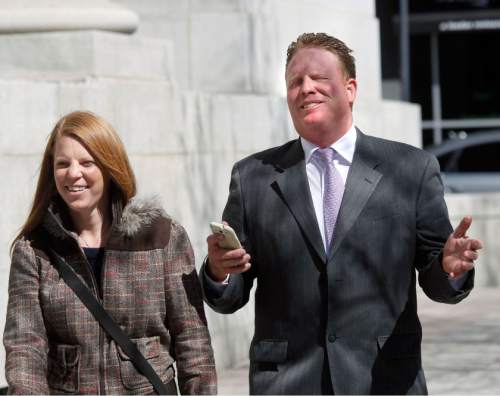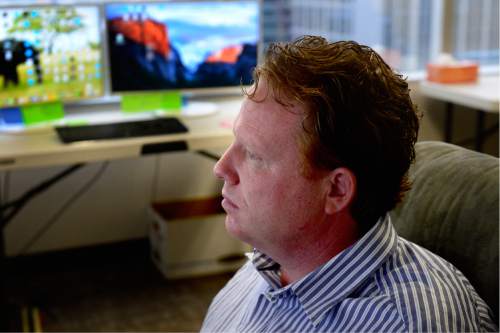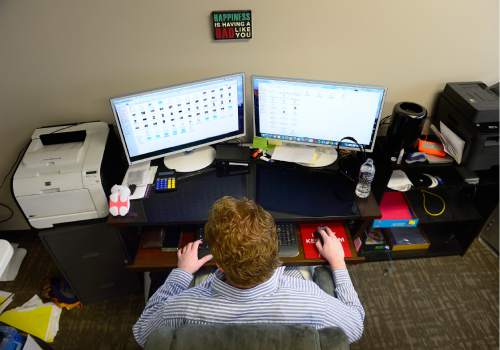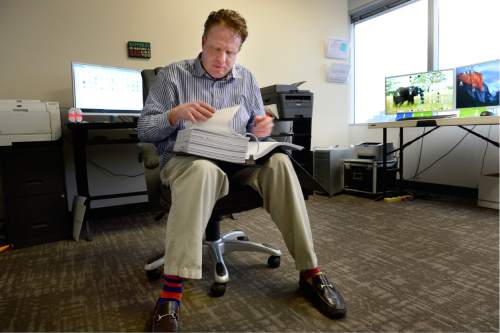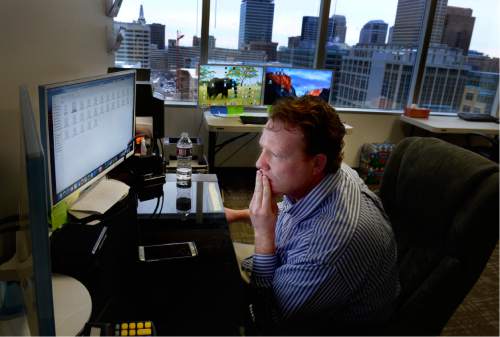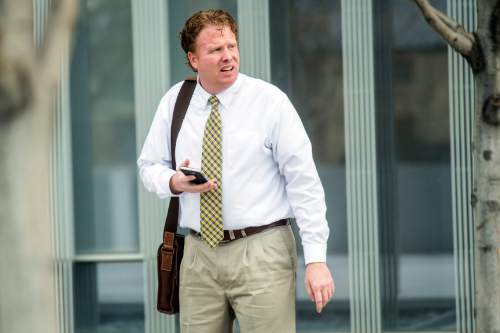This is an archived article that was published on sltrib.com in 2016, and information in the article may be outdated. It is provided only for personal research purposes and may not be reprinted.
A defense witness in the federal court trial of St. George businessman Jeremy Johnson turned the tables on him Wednesday, saying Johnson almost destroyed his company and was not the honest man he appeared to be.
The day's testimony could prove a big strategic mistake for Johnson, who is acting as his own attorney as he tries to defend himself against 86 charges related to allegations of bank fraud that concern credit-card processing accounts opened through a California company called CardFlex.
"When I came to him, I thought he was philanthropic, legitimate, brilliant, honest — looked me in the eye," Andy Phillips, the owner of CardFlex, told jurors. "But over the years, I've come to learn that's not the case. So he darn near destroyed my company, that I spent 30 years building, by greed and by taking advantage."
But, under questioning from Johnson, Phillips also said his new understanding of how I Works was operating came from the Federal Trade Commission, which sued Johnson and I Works in December 2010 in a case that is now scheduled to go to trial in July.
The FTC also sued CardFlex, alleging it was negligent in allowing I Works to open accounts for charging credit cards using "shell corporations." Phillips testified Wednesday that his opinion on I Works was "based on information that was pounded down my throat by the Federal Trade Commission."
Phillips settled the FTC suit. He agreed to assessments of about $3.4 million, to monitor clients considered high risk and to stop servicing companies that had high rates of refunds or chargebacks, among other provisions.
Phillips also said he relied on his attorneys to convey to him the weight of the FTC's evidence and that "I guess I just assumed they had pretty good evidence."
At one time, Phillips' name also was on a list of people prepared by prosecutors who possibly could be charged in the Johnson case as part of an alleged conspiracy.
While he wanted to contest the FTC's allegations, he didn't do so, Phillips said, "because I couldn't afford to. It would have cost me a minimum of $5 million and five years of my life."
His testimony also bolstered the account of one of Phillips' former managers at CardFlex, Will Swaim, who earlier in the trial had accused Johnson of conning him and others at the company.
Phillips, like Swaim, testified that Johnson, his co-defendant Ryan Riddle and others at I Works had said their business model had changed so that instead of marketing products online, they would be providing support services for new independent companies who wanted to be engaged in e-commerce.
A meeting that involved Riddle at I Works headquarters in which the model was discussed now felt like a "set up," Phillips said. "He had guys in ties and bow ties up there. On reflection, I think it was too perfect."
Instead of serving independent businesses, Phillips said he came to understand that I Works had created a bunch of companies using the names and personal information of employees and family members in order to obtain accounts after I Works' own accounts were shut down due to a high number of credit card chargebacks.
Tensions in the courtroom heated up after Phillips' statements.
Attorney Marcus Mumford, who represents co-defendant Scott Leavitt, attempted to introduce an email that he said would impeach Phillips' testimony.
U.S. District Judge David Nuffer, who has clashed several times with Mumford during the trial, twice denied the attorney's motion to receive the email into evidence. After the second time, Mumford tried to explain why it should be allowed.
"No, Mr. Mumford. No!" said a perturbed Nuffer, who for the most part has not allowed attorneys to make arguments on why evidence should or should not be allowed into the court record.
When Mumford persisted, Nuffer called a courtroom security agent to stand right behind him, apparently ready to restrain the attorney if the judge deemed it necessary.
A few minutes later, after Mumford had resumed questioning the witness, Nuffer asked the guard to take a seat.


